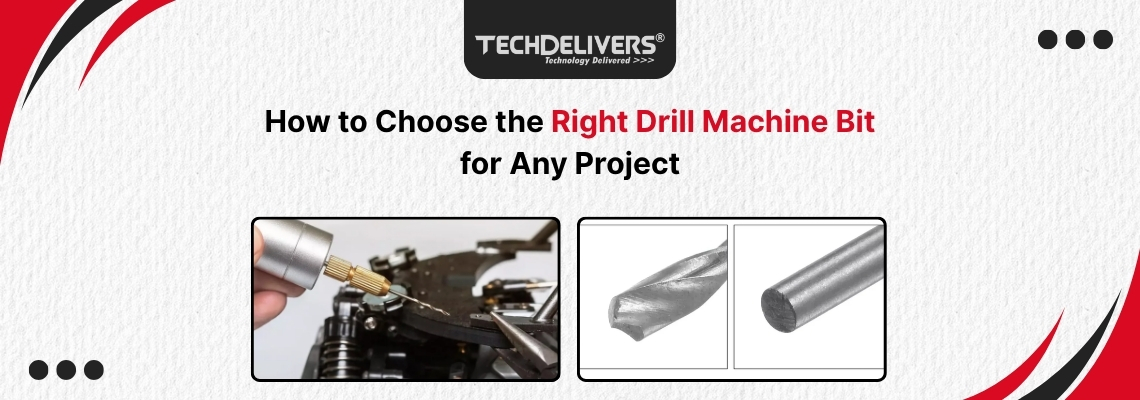
Most people think drilling a hole is just a simple press-and-go job. But the moment the bit slips on the wall or starts heating up, you realize the truth. The whole game depends on using the Right Drill Machine Bit. If the bit doesn’t match the material, even the best drill machine can struggle.
So, if you want clean holes, no unnecessary cracks, and a little peace of mind, let’s talk about how to choose the Right Drill Machine Bit like someone who actually knows what they are doing.
What exactly is a Right Drill Machine bit?
A Right Drill Machine Bit is the tool at the front of your drill machine that cuts into surfaces. They all may look similar at first glance, but they are not created equal. Every bit is designed to handle a specific type of surface and task. That’s why one wrong choice can turn a simple job into a frustrating one.
Why picking the Right Drill Machine Bit really matters
Using the wrong bit means:
The hole becomes uneven or messy
The bit gets damaged or bends
The drill machine vibrates too much
You waste time and energy
The material may crack
It is a small decision, but it decides the quality of your work.
Based on the material, the easiest way to choose
The most practical way to pick the Right Drill Machine Bit is to simply look at what you are drilling into. Surfaces react differently. Here is how to match them correctly:
For wood
If you are working on shelves, furniture, plywood, etc.:
Brad Point Bits: These keep the hole neat and centred
Spade Bits: Good if you want larger holes in wood
Auger Bits: Best for deeper drilling without losing control
A normal metal bit can also go through wood sometimes, but it will not give a clean finish.
For metal
Metal is harder, so you need bits that can tolerate heat:
HSS (High-Speed Steel) Bits: Works for steel sheets, aluminum, and pipes
Cobalt Bits: A better pick for tough metals like stainless steel
Adding a drop of oil while drilling helps a lot. The bit stays cool and sharp for longer.
For concrete or walls
If you are installing something on brick or concrete:
Masonry Bits: These come with a hard carbide tip
Just make sure your drill machine has a hammer function. A regular drill will struggle and make more noise than holes.
For plastic
Plastic can crack easily:
Regular Twist Bits: Do the job well
Use slow speed to avoid melting
These small details help in making the work look clean.
Right Drill Machine Bit Guide
If you are putting screws into a wall or wood, always choose a bit slightly smaller than the screw. That way, the screw grips tightly and stays in place. A bigger bit means the screw will slip out later.
Do coatings matter?
Sometimes yes. Sometimes no. But here is a quick breakdown:
Titanium-coated bits: Last longer, less friction
Cobalt bits: Perfect for heavy-duty metal work
Basic black bits: Fine for occasional home use
If you often drill, invest in better ones. Cheaper bits wear out fast.
Check your drill compatibility
Not every bit works with every drill. For example:
Hammer drills are best for masonry bits
Impact drivers want bits with a hex shank
Regular drills handle most standard bits well
A little attention here saves a lot of trouble later.
Mistakes beginners make
A few common ones:
Drilling too fast and burning the bit
Using a wood bit on metal
Forgetting to tighten the bit properly
Pushing too hard instead of letting the bit do the work
Once someone understands these, drilling becomes much smoother.
A quick shortcut for choosing the Right Drill Machine Bit
Here is the simplest cheat sheet:
Wood: Brad point or spade bit
Metal: HSS or cobalt bit
Concrete: Masonry bit
Plastic: Twist bit
Screws: Bit size slightly smaller than the screw
If you remember this, you will avoid most drilling problems.
How to know if you are using the wrong bit
If the bit is slipping, heating too quickly, making smoke, or the material starts chipping, something is not right. Stop for a second and check whether you picked the Right Drill Machine Bit for the surface.
Final Thoughts
The goal is not only to drill a hole. The goal is to make it look clean and stay strong. Choosing the Right Drill Machine Bit helps you get the job done without stress. Honestly speaking, once you understand which bit does what, drilling becomes one of the easiest DIY tasks around the house.
So next time you pick up a drill machine, give a little attention to the bit. It makes all the difference. Buy now!
FAQs About Choosing the Right Drill Machine Bit
1. Can I use one bit for wood, metal, and walls?
Not a good idea. Each surface needs its own bit for clean results.
2. Why does my bit become hot or smoky?
Probably the wrong bit or too much speed. Slow down and use the right type.
3. Which bit should I use for home wall drilling?
A masonry bit works best for brick or concrete walls.
4. How do I avoid the hole cracking in tiles or plastic?
Start slow, apply light pressure, and use a suitable twist or masonry bit.
Follow us on Facebook and Instagram for more smart DIY tips and tool guides!





















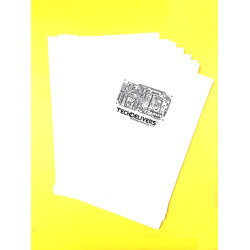
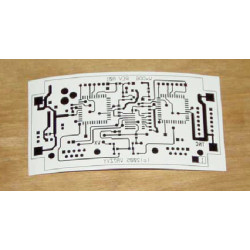
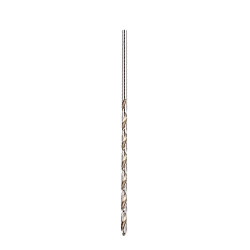
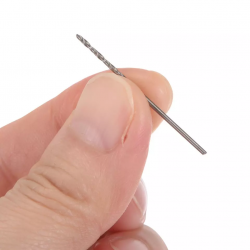
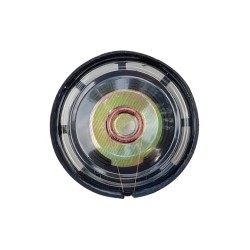
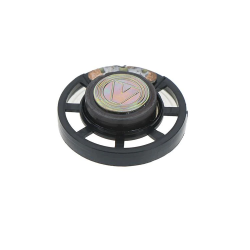
Leave a Comment